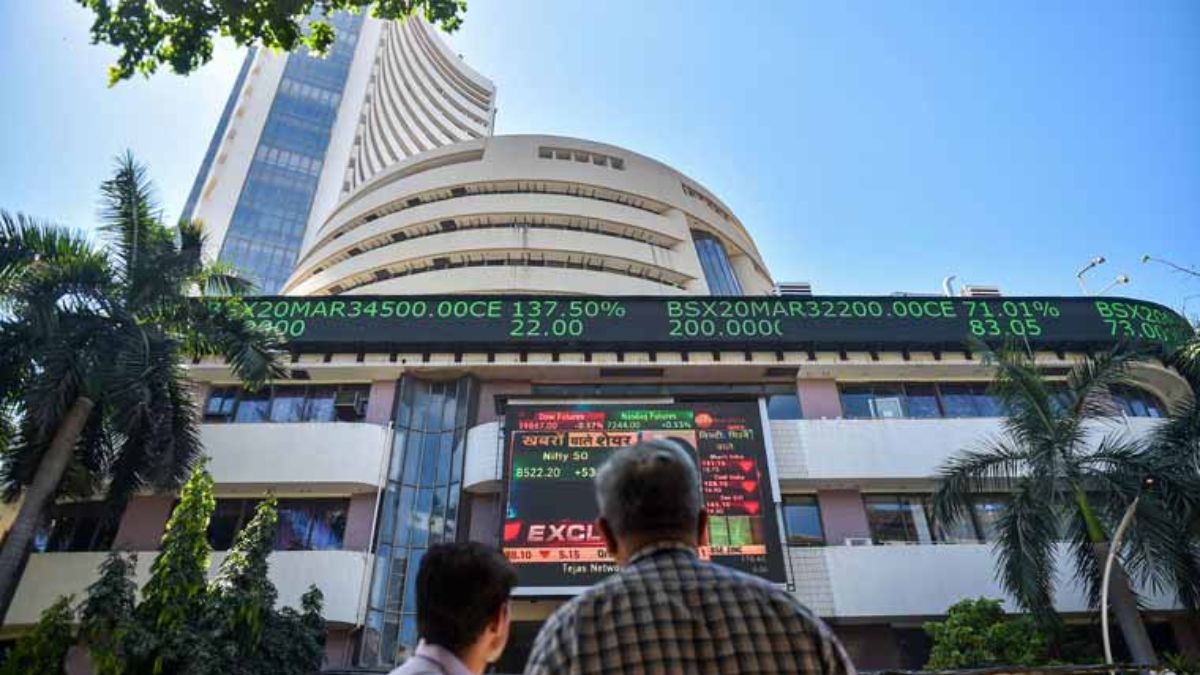We are only seven days into 2025, but what a roller coaster ride it's been for equity market investors. After ending 2024 at 78,139.01 on December 31, the BSE Sensex edged closer to 80,000 on January 2, 2025, only to fall back below 78,000 on Monday, January 6. On Tuesday, it inched up 234 points to close at 78,199.11.
Last year, benchmark indices hit new highs, but retreated over 8 per cent from those peaks amid massive selling by foreign institutional investors. Analysts were advising investors to tone down their expectations for 2025, amid continued geopolitical tensions, uncertainty around how the economic and trade policies of incoming US President Donald Trump would play out, and slowing domestic economic growth, while valuations too had been stretched.
Over the last 3-4 years, broader markets gave strong returns. While FIIs were big sellers last year, strong domestic retail fund flows help offset that to a large extent. While domestic flows are expected to remain steady this year, markets could see a phase of consolidation and investors may have to be selective in their stock picking, feels Mahesh Patil, the chief investment officer at Aditya Birla Sun Life Asset Management Company.
"This year is clearly going to be a stock-picking year. You have to get your stock selection right. Few stocks will do very well, few stocks will also do very badly. In the last 2-3 years, it was across the board, and breadth had been very good. Now you have to be selective," Patil said.
The key to success will lie in selective investing, focusing on companies with strong cash flows, prudent capital allocation, and a long-term track record of performance, he added.
The fund house noted that India's relative positioning in foreign portfolio investors' portfolios was down to the lowest in more than a decade and a market rebound is likely once the FII selling abates.
ABSL AMC sees returns across asset classes converging this year. The asset manager expects equity to deliver around 8-12 per cent returns in 2025. Returns for gold and silver will also be similar 8-12 per cent, slower than the 26 per cent rise in gold prices in 2025. Fixed income investments, on the other hand, are expected to deliver around 8-9 per cent returns.
"This balanced outlook suggests a diverse approach to portfolio construction, with each asset class offering the potential for attractive returns, but with varying degrees of risk and volatility," according to the fund house.
Among key sectors, metals, cement retail and real estate are expected to report above-average earnings growth in 2025-26. On the other hand, fast-moving consumer goods, automobiles, financials and power companies could report below-average earnings, according to the fund house's analysis.
The impact of tariff policies under Trump will be the biggest variable this year, feels Patil. Domestically, while the government's investment push is expected to rebound after slow first-half spending due to the elections, how household and private capital expenditure pans out will also have to be watched out for.
India's GDP growth slowed sharply to 5.4 per cent in the July-September quarter and ABSL AMC sees growth picking up, but the expectation of a 6.2 per cent growth in the current financial year ending March 2025 is significantly lower than the 8.2 per cent surge last year.
A slowdown in urban consumption and slow government spending in the first half were among the reasons for the growth slowing, according to analysts. Also, regulatory tightening by the Reserve Bank in unsecured retail lending has impacted credit growth.
In the 2025-26 financial year, the asset manager expects growth to revert to its long-term average of around 6.5 per cent.
The Reserve Bank of India has in the last couple of monetary policy committee meetings turned neutral, and in December also reduced the cash reserve ratio. However, it has still left the benchmark repo rate unchanged at 6.50 per cent, in the wake of high inflation, which has been mainly driven by volatile food prices. The RBI status quo came even as major global central banks cut interest rates several times.
ABSL AMC expects the Reserve Bank will cut the repo rate this year by 75 basis points. It will also look to add liquidity aggressively, through various measures, the fund house believes.
Any rate cut could spur consumption growth, felt Patil.



